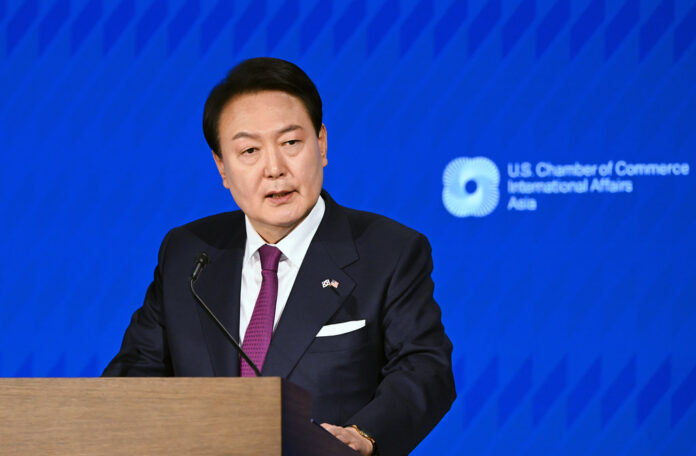In recent years, South Korea has witnessed a significant transformation in its media landscape, marked by the emergence and proliferation of right-wing YouTube channels. These platforms have reshaped public discourse and played a pivotal role in influencing political narratives and actions, notably those of former President Yoon Suk Yeol.
The Rise of Right-Wing YouTube Channels
The digital age has democratized information dissemination, allowing individuals to bypass traditional media gatekeepers. In South Korea, this shift has been particularly pronounced among conservative commentators who have leveraged YouTube to reach vast audiences. Figures like Ko Sung-kook, host of “Kosungkook TV,” have garnered substantial followings by addressing topics resonant with right-leaning citizens. Ko’s channel, for instance, boasts over 1.1 million subscribers, reflecting the appetite for alternative conservative viewpoints.
Yoon Suk Yeol’s Engagement with Conservative YouTubers
Elected in 2022 by a narrow margin, Yoon Suk Yeol recognized the influence of these digital platforms early in his presidency. He extended invitations to prominent right-wing YouTubers for his inauguration and appointed individuals from this sphere to significant positions, such as the head of the public servant training agency. This engagement signaled an unprecedented endorsement of alternative media sources by a sitting president.
Yoon’s alignment with these platforms was not merely symbolic. He frequently echoed narratives popularized by conservative YouTubers, notably claims of election interference and the presence of “anti-state” actors within the government. In a December 2024 address, Yoon condemned political opponents as obstructionist forces aligned with North Korea, assertions that mirrored content disseminated by channels like “Kosungkook TV.”
The Martial Law Declaration and Its Aftermath
The culmination of this interplay between digital media and politics was evident in Yoon’s December 3, 2024, declaration of martial law. Citing unsubstantiated claims of election hacking and internal subversion—narratives heavily promoted by right-wing YouTubers—Yoon mobilized military forces to suppress perceived threats. This move led to widespread protests, a contentious impeachment process, and his eventual removal from office.
Societal Implications and Polarization
The symbiosis between Yoon and conservative YouTube channels has had profound implications for South Korean society. The amplification of divisive narratives contributed to heightened political polarization, with public discourse increasingly fragmented along ideological lines. Critics argue that Yoon’s reliance on these platforms fostered an environment where conspiracy theories gained undue legitimacy, undermining trust in traditional institutions and media.
Conversely, supporters contend that these channels provided a necessary counterbalance to mainstream media. This in turn, offers perspectives they believe are often marginalized. The substantial viewership of these platforms underscores a segment of the populace’s desire for alternative viewpoints, reflecting broader global trends of media consumption.
What’s Next for South Korea?
With President Yoon stripped of office by the Constitutional Court, South Korea enters a critical transition period marked by political uncertainty and high-stakes decision-making. Yoon, now stripped of immunity, faces insurrection charges that could lead to prison; or even the death penalty. Experts also expect prosecutors to intensify investigations into his wife, Kim Keon Hee, who was long shielded from scrutiny during his presidency.
According to the rules, it is mandatory for the country to hold a fresh presidential election within 60 days. Early June is emerging as the likely window. Unlike regular polls, the winner will assume office immediately, leaving little room for transition. Prime Minister Han Duck-soo currently serves as acting president, having resumed duties after surviving his own impeachment.
Opposition leader Lee Jae-myung, head of the Democratic Party, is the current frontrunner with 34% support in recent Gallup polls. If elected, Lee would govern with a legislative majority, potentially unlocking sweeping reforms. His main rival is Labour Minister Kim Moon-soo, a former leftist turned conservative, currently polling at 9%.
Beyond the ballot box, South Korea’s next president faces daunting challenges: restoring public trust, reviving a sluggish economy, and navigating a shifting global order. This situation will test South Korea’s relations with the United States, especially amid renewed tensions with North Korea. As the country turns a page, the next administration must grapple with not only Yoon’s legacy but also the deep ideological divides his presidency deepened.
The entwinement of right-wing YouTube channels and former President Yoon Suk Yeol’s administration exemplifies the evolving dynamics of media influence in politics. As digital platforms continue to shape public opinion, their role in democratic societies warrants careful scrutiny. South Korea’s recent experiences serve as a poignant case study of the potential ramifications when political leaders align closely with alternative media sources, highlighting the delicate balance between embracing new media landscapes and safeguarding democratic integrity.



